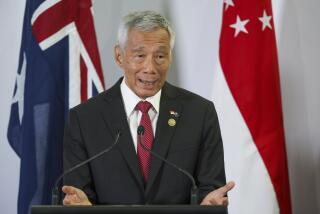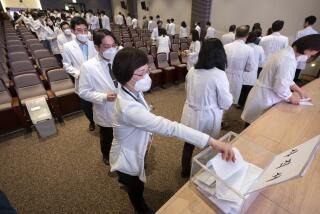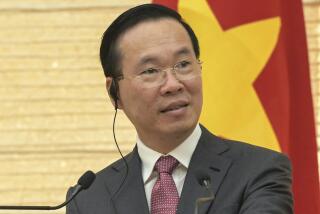South Korean prime minister offers resignation amid corruption probe
South Korean Prime Minister Lee Wan-koo submitted his resignation Tuesday amid a growing corruption scandal.
Lee has been under pressure from the political opposition to step down as he faces bribery allegations in connection with large sums of government funds that went unaccounted for in state-directed overseas energy projects.
The resignation cannot be finalized until it is accepted by South Korean President Park Geun-hye, who is scheduled to return next week from a trip to Latin America.
The scandal broke on April 9 when businessman Sung Wan-jong hanged himself on a hillside in Seoul, the South Korean capital. Under investigation for bribery, Sung left behind a note listing several high-ranking politicians next to figures said to indicate bribes. In the note, Sung claimed that in 2013 he gave the prime minister $27,600, hidden in boxes of a vitamin drink.
Sung was chairman of Keangnam Enterprises, a company that had been commissioned to invest government money in energy projects abroad. Lee touted the Keangnam projects, which are currently under investigation, as a financial boon for South Korea. The political opposition, however, accuses the ruling party of sinking billions of dollars into projects that have shown little returns.
Lee initially denied accepting any money from Sung and pledged to remain in his position.
Current presidential chief of staff Lee Byung-kee and his predecessor, Kim Ki-choon, were also named in Sung’s note.
In South Korea, the post of prime minister is a mostly ceremonial role without much day-to-day responsibility. However, over the last year, it has proved a tough position to fill.
In April 2014, former Prime Minister Chung Hong-won resigned amid criticism of the government’s handling of the Sewol ferry sinking.
Chung’s replacement, Ahn Dae-hee, withdrew from consideration after it was revealed that he used connections made as a Supreme Court justice to earn millions of dollars in his private legal practice.
After Ahn, former journalist Moon Chang-geuk withdrew just before his confirmation after controversial comments he made during his media career were revealed.
Since Park came to office in early 2013, her tenure has been plagued by controversial appointments and the lingering effects of the Sewol sinking. An opinion poll released last week by Gallup Korea showed Park’s approval rating dipping to 34%, from 39%.
Last weekend, large demonstrations were held in downtown Seoul, led by families of those affected by the Sewol disaster. Angry over investigation delays, protesters clashed with police, who responded with pepper spray and water cannons.
Borowiec is a special correspondent.
More to Read
Start your day right
Sign up for Essential California for news, features and recommendations from the L.A. Times and beyond in your inbox six days a week.
You may occasionally receive promotional content from the Los Angeles Times.






